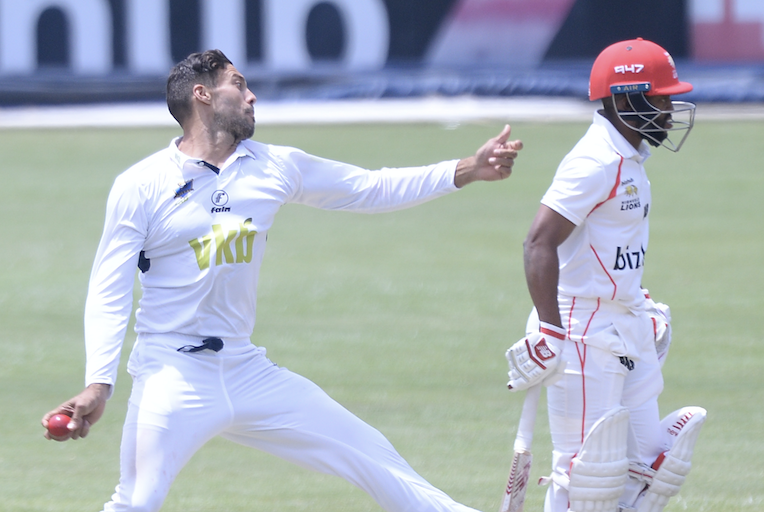‘You need to play through the pain barrier, but it is essential to know how to draw the fine line and know when to stop,’ says Kenosi Mashwabi, the VKB Knights’ assistant strength and conditioning coach.
What do players need to be careful about when it comes to their training?
The main thing is to develop the ability to listen to your body. Our physio, Keagan Rafferty, always says that pain is a good measure of how far you can push your body. You need to play through the pain barrier and ‘be a man’, but it is essential to know how to draw the fine line and know when to stop. It’s all about understanding your body and listening to what it tells you.
What advice do you have for players?
It’s important to have a knowledge of the game and various components of the game. You can always find a way to research about the sport through magazine and newspaper articles as well as YouTube, so you should equip yourself in that way. When it comes to the competitive edge it is important to have a thorough understanding of all the different components of the sport and to know what is going on in your body.
How do you handle a situation where a player returns from the off-season overweight?
This is where the relationship factor comes in, as it is all about getting to know the players, to understand them and to build a relationship of trust. You approach guys in different ways and some will laugh about it, but other players you need to call them aside and first chat to them to find out what the real reason might be for them carrying any extra weight. Perhaps there is stuff going wrong at home or they have other worries on their mind, so it’s important to take a holistic approach before you dive into the problem, because a tough approach will only succeed in driving them into a corner and they might not come out of it. It’s about relationships and trust.
What is your key to working with individual players?
You need to make room for them to go about their training and conditioning in their own way, and if they mess up you need to be able to help pull them out of a rut without damaging your relationship, because at the end of the day the trainer is there to provide a platform for the athlete to perform.
Are there differences between working with the men and women cricketers?
It’s a different ball game all together. I tried to operate with the women in the same way as the guys last season, but it backfired. With women you need to have patience to build trust with them and to build a good relationship, and then they will cooperate with you as the trainer. There is a certain level of professionalism, but to get more out of the women it’s about your relationship with them and how you communicate and give them the space they need to communicate themselves and to grow themselves. Out of trust you get loyalty … and once you have loyalty then it’s settled.
What unique strengths have you noticed among the women players?
I find that their endurance is incredible. Women have an incredible strength in terms of being able to face stuff they have to deal with at home or in the game – and they just get stuff done. There is also a very interesting caring factor among the women cricketers and you see that in the way they cheer each other up. Guys get grumpy, but women are talkers and they communicate with each other and ask for explanations. There always seems to be an open line of communication and that works well in the team context. Men and women are two different species, but as people we can always learn a few things from one another.
READ ALSO: ‘Training is the 1% that leads to the 100% of success.’ – Kenosi Mashwabi
What has been the biggest lesson you have learned from cricket?
The main thing I take from the players and even team management is that this game will teach you patience, and when you think of all the different personalities on a cricket field, you’re most likely to encounter that in life. Being mindful and selfless will help you be more patient, and that’s something you can take into everyday life away from the cricket field.
Kenosi Mashwabi is the assistant strength and conditioning coach for the VKB Knights and their massage therapist. He is also the head trainer with the Free State academy side, the semi-pro team and their women’s team.
Photo: Samuel Shivambu/BackpagePix








